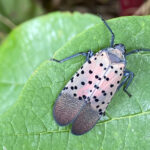If you’ve ever watched your feline friend leap and snatch a fly mid-air, you might have wondered, “Is that okay for them to eat?” The good news is, if your cat has munched on a fly or two, you probably don’t need to panic. Flies are not inherently toxic to cats, and a small snack of these buzzing insects is unlikely to cause any serious harm. Even flies that have encountered insecticides are generally not a significant threat in such small quantities. However, if you’re ever concerned about something your cat has eaten, it’s always best to consult with your veterinarian.
 divider 2 cats
divider 2 cats
Are Flies Safe for Cats to Eat?
Generally, yes, flies are safe for cats to eat in small amounts. Unlike some other insects like fleas, ticks, spiders, or bees which carry more significant risks, flies are less problematic when ingested. The occasional fly snack won’t typically cause toxicity or poisoning in cats. Even if a fly has been exposed to household insecticides, the dose a cat might ingest from eating a single fly is usually too low to cause concern. However, it’s always a good practice to minimize your cat’s exposure to any insecticide-treated insects. When in doubt, a quick call to your vet can provide reassurance.
Parasite Risks from Flies
While flies themselves aren’t poisonous, they can carry parasites. Some flies can transmit Isospora organisms, which can lead to coccidiosis. This parasitic disease can be more concerning in kittens, potentially causing diarrhea and other gastrointestinal upset. Adult cats may be less susceptible or show no symptoms at all. Additionally, flies can pick up various bacteria and pathogens by landing on unsanitary materials like feces. If a cat eats a fly that has been in contact with contaminated substances, there is a potential, albeit low, risk of transmitting infections.
Why Do Cats Hunt and Eat Flies: Instinct, Not Hunger
The primary reason cats chase and eat flies isn’t usually because they are hungry. For cats, hunting is an innate instinct. In the wild, cats are natural predators, relying on their hunting skills to survive. This involves stalking, chasing, and pouncing on prey. Indoor cats, while domesticated, still possess these strong predatory drives. Flies buzzing around the house provide an easily accessible outlet for these instincts. The movement of a fly triggers a cat’s chase and pounce response, offering a stimulating activity. Many cats enjoy the hunt itself, sometimes playing with or simply killing the fly without actually eating it.
Do Cats Eat Flies Because They’re Hungry?
While flies do contain some protein, they are not a significant source of nutrition for cats. A few flies will not satisfy a cat’s dietary needs. Cats that are fed a balanced, high-quality cat food receive all the necessary calories and nutrients from their regular meals. Therefore, eating flies is more likely a manifestation of their natural hunting behavior rather than a response to hunger. In their natural environment, cats would hunt larger prey like rodents, birds, and small rabbits to fulfill their nutritional requirements.
 cat hunting in grass
cat hunting in grass
How to Discourage Fly Catching
If you prefer your cat to leave the flies alone, there are strategies to reduce fly encounters and redirect your cat’s hunting instincts. A two-pronged approach of minimizing flies and providing alternative activities for your cat is often effective.
Ways to Minimize Flies
Preventing flies from entering your home is the first step. Ensure your windows have screens and repair any damaged screens. Promptly clean up and store food, as uncovered food attracts flies. Wash pet food bowls daily with hot, soapy water and avoid leaving wet food out for extended periods. Use sealed trash cans to eliminate fly breeding grounds. Regularly remove ripe or rotting fruits and vegetables that can attract flies.
Ways to Encourage Alternate Activities
Provide your cat with engaging toys that mimic hunting. Toys that move, flutter, or can be chased can satisfy their predatory urges. Regular play sessions, even just 10-15 minutes a few times a day, are crucial. Playtime allows cats to expend energy, stimulate their minds, exercise their hunting instincts, and bond with you. Offer a variety of toys and rotate them to maintain interest. Food puzzles can also be a great way to engage your cat’s mind and body, providing a rewarding alternative to bug hunting.
Conclusion
So, Do Cats Eat Flies? Yes, they do, and it’s usually not a cause for major concern if your cat snacks on a fly. It’s a natural, instinctual behavior rooted in their predatory nature, not driven by hunger. While flies pose minimal risks, they also offer no nutritional benefit to your cat. If your cat happens to eat a fly that has been exposed to insecticide, it’s unlikely to be harmful in such a small dose, but contacting your vet is always a safe approach if you’re worried. To reduce fly-catching, focus on minimizing flies in your home and providing your cat with plenty of engaging playtime and alternative outlets for their hunting instincts.

